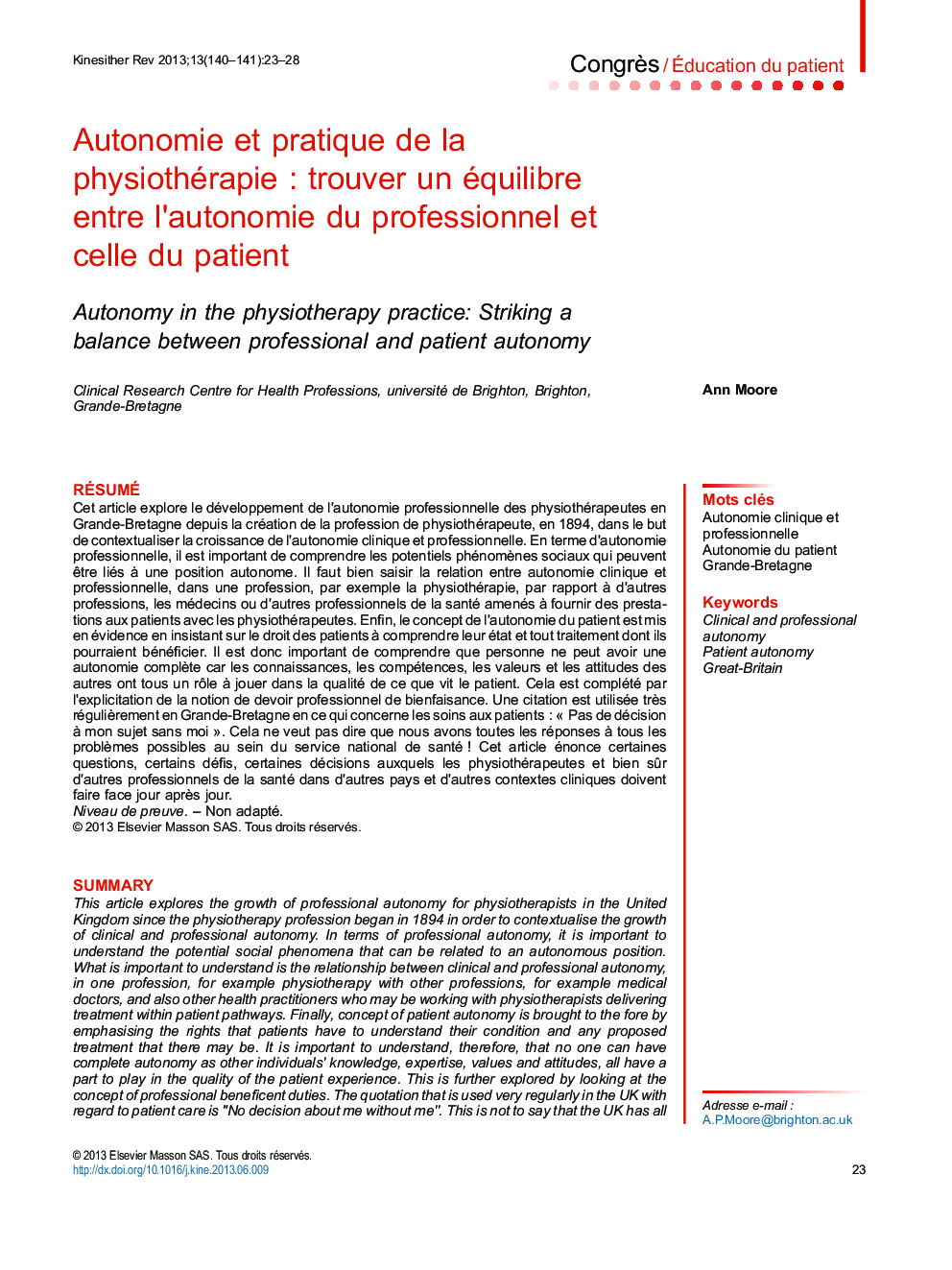| Article ID | Journal | Published Year | Pages | File Type |
|---|---|---|---|---|
| 2622462 | Kinésithérapie, la Revue | 2013 | 6 Pages |
RésuméCet article explore le développement de l’autonomie professionnelle des physiothérapeutes en Grande-Bretagne depuis la création de la profession de physiothérapeute, en 1894, dans le but de contextualiser la croissance de l’autonomie clinique et professionnelle. En terme d’autonomie professionnelle, il est important de comprendre les potentiels phénomènes sociaux qui peuvent être liés à une position autonome. Il faut bien saisir la relation entre autonomie clinique et professionnelle, dans une profession, par exemple la physiothérapie, par rapport à d’autres professions, les médecins ou d’autres professionnels de la santé amenés à fournir des prestations aux patients avec les physiothérapeutes. Enfin, le concept de l’autonomie du patient est mis en évidence en insistant sur le droit des patients à comprendre leur état et tout traitement dont ils pourraient bénéficier. Il est donc important de comprendre que personne ne peut avoir une autonomie complète car les connaissances, les compétences, les valeurs et les attitudes des autres ont tous un rôle à jouer dans la qualité de ce que vit le patient. Cela est complété par l’explicitation de la notion de devoir professionnel de bienfaisance. Une citation est utilisée très régulièrement en Grande-Bretagne en ce qui concerne les soins aux patients : « Pas de décision à mon sujet sans moi ». Cela ne veut pas dire que nous avons toutes les réponses à tous les problèmes possibles au sein du service national de santé ! Cet article énonce certaines questions, certains défis, certaines décisions auxquels les physiothérapeutes et bien sûr d’autres professionnels de la santé dans d’autres pays et d’autres contextes cliniques doivent faire face jour après jour.Niveau de preuveNon adapté.
SummaryThis article explores the growth of professional autonomy for physiotherapists in the United Kingdom since the physiotherapy profession began in 1894 in order to contextualise the growth of clinical and professional autonomy. In terms of professional autonomy, it is important to understand the potential social phenomena that can be related to an autonomous position. What is important to understand is the relationship between clinical and professional autonomy, in one profession, for example physiotherapy with other professions, for example medical doctors, and also other health practitioners who may be working with physiotherapists delivering treatment within patient pathways. Finally, concept of patient autonomy is brought to the fore by emphasising the rights that patients have to understand their condition and any proposed treatment that there may be. It is important to understand, therefore, that no one can have complete autonomy as other individuals’ knowledge, expertise, values and attitudes, all have a part to play in the quality of the patient experience. This is further explored by looking at the concept of professional beneficent duties. The quotation that is used very regularly in the UK with regard to patient care is “No decision about me without me”. This is not to say that the UK has all the answers to all the possible problems within the National Health Service! But the paper does set out some issues, some challenges, some decisions that physiotherapists and of course other health professionals in other countries and other clinical settings have to make on a day to day basis.Level of evidenceNot applicable.
